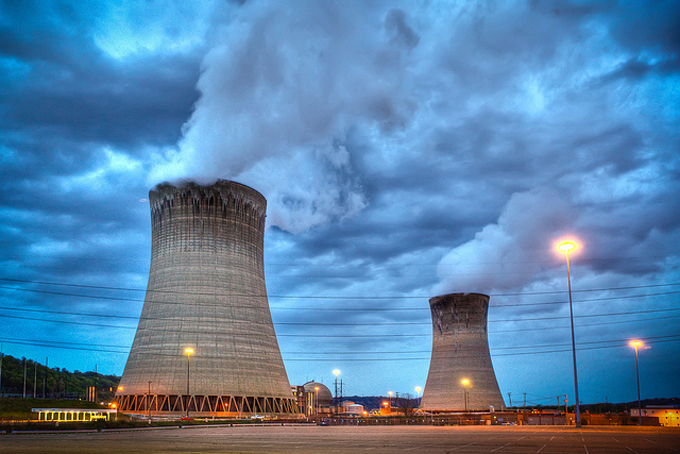
SHIPPINGPORT, Pa. (AP) – The federal Nuclear Regulatory Commission has backtracked on concerns it raised about a safety drill earlier this year meant to measure a western Pennsylvania nuclear power plant’s ability to fend off a terrorist attack.
Officials with the NRC and FirstEnergy Corp., which owns the Beaver Valley Nuclear Power Station, said the NRC has rescinded its August finding that one problem with the drill resulted in a “greater than green” level violation.
The color-coded scale has four levels of violations, with green being the least serious. Had the NRC finalized its finding of a “greater than green” violation, the plant 30 miles northwest of Pittsburgh would have been the subject of increased federal oversight.
Instead, NRC spokesman Neil Sheehan said the regulatory agency’s concerns were answered at a closed-door meeting with the company in September, prompting the NRC to since announce that no security-related “incident” had occurred stemming from the mock attack, known as a “force-on-force” drill.
“We felt the issue related to the way the drill was conducted or controlled rather than a true deficiency in our protective strategy,” FirstEnergy spokeswoman Jennifer Young said. “Additional inspections, which will include a force-on-force component, will confirm that these types of controller issues have been corrected.”
Sheehan said NRC inspectors initially believed a “greater than green” incident had occurred during the April drill. Nuclear plants are required to conduct such drills every three years since the Sept. 11, 2011, terror attacks.
When the NRC issues such a finding, the agency gives the plant a chance to respond and one of three things can happen: the finding can be confirmed, downgraded, or determined to not be a finding. Though the third outcome rarely occurs, it did in this case, Sheehan said.
Sheehan said the NRC wants “to make sure we get it right, and as part of that process, the company has an opportunity to make its case. More often than not, they don’t prevail when they make their case. In this case, they persuaded us there was additional information we needed to consider and we are not going to issue a ‘greater than green’ finding.”
The NRC doesn’t divulge details of security findings, or even the exact grade of the incident – with red being the most serious – to safeguard any information from would-be attackers.